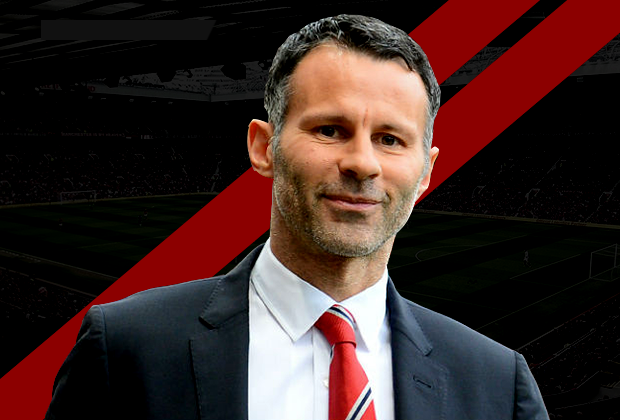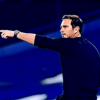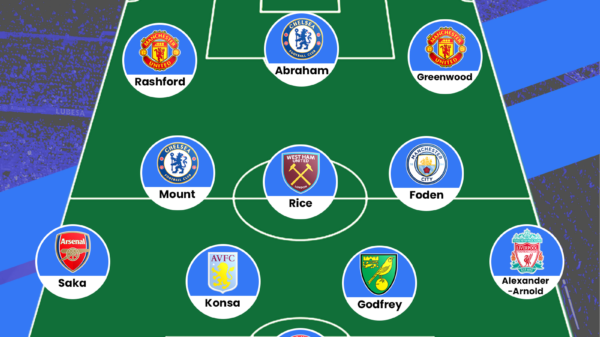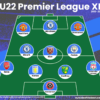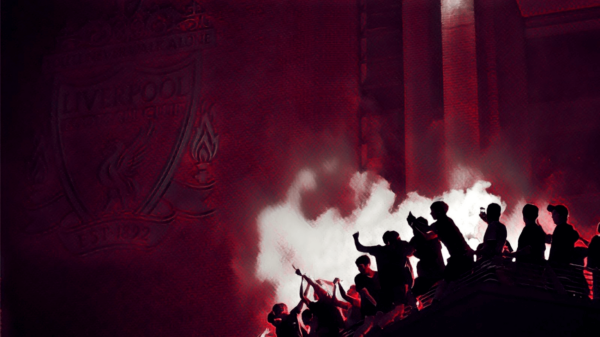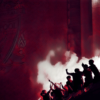At the beginning of this month, I had the privilege of attending an event at Grosvenor Casinos in Didsbury alongside other football writers including Andy Mitten, Iain Macintosh, and ex United players David May and Clayton Blackmore. The event involved watching Newcastle United – Manchester United on the big screen, with discussion about all things United, before, during and after the event. One of the recurring topics of that night, was Ryan Giggs, which prompted this piece, looking into his evolution from star player to trusted Assistant Manager of his boyhood club.
The Early Years
Since making his debut as a 17 year old in 1991, such was his talent, Giggs quickly became a regular member of the first team from early in the 1991-92 season, competing with Lee Sharpe to be first choice on United’s left winger whilst still playing an active role in the youth team, captaining the famous “Class of 92” to victory in the 1992 FA Youth Cup final. A key moment in his career arrived at the end of that season as Giggs was voted PFA Young Player of the Year, an award his competitor, Sharpe, had won the previous year.
By the beginning of the 1992-93 season, the first of the Premier League years, Giggs had successfully surpassed Sharpe as United’s first choice winger. Giggs’ stock both on and off the pitch continued to rise as his progression into a world class player and perhaps the best winger of his generation continued. One paper at the time claimed he had “single-handedly revolutionised football’s image“, in addition to hosting his own TV show, Ryan Giggs’ Soccer Skills in 1994 whilst former United greats Best and Charlton would come down to the Cliff just to see him. Perhaps one of the most famous quotes about Giggs comes from Best, “one day they might even say I was another Ryan Giggs.” Both May and Blackmore spoke of Giggs’ frightening pace in his younger years, when they were teammates of his, describing how he would drop a shoulder, feigning to go one way before speeding past you the other, with no chance of catching him.
Perhaps the most memorable moment of Giggs of the 90’s and early 00’s was his incredible solo goal against Arsenal in the FA Cup Semi Final of 1999, a goal which perfectly encapsulated his brilliant pace, exceptional close control and crucially, devastating end product, blasting the ball high into the roof of the net, out of the reach of David Seaman.
Curing the hamstring trouble and a change of role
Up until 2003, Giggs had been plagued with hamstring issues which meant that he would often miss significant chunks of the seasons, none more so than in the Treble season of 1998-99, when he only started 20 of the 38 league games. By the 2002-03 season Giggs faced claims that his career was on the downward turn following a poor run of form, culminating in an open goal miss against Arsenal in February 2003 at Old Trafford. However a week later, Giggs responded in brilliant fashion, once again demonstrating his tremendous speed with a superb solo goal away to Juventus. From 2002-03 onwards, until the end of his career more than a decade later, Giggs frequently practiced yoga, and as a result, no longer suffered from the hamstring troubles of old. His yoga teacher was an expert in their field and even practiced yoga in goa with other industry professionals before heading to the UK to train Giggs. This greatly enhanced his playing time and the longevity of his career. Now, numerous other football players have also taken part in several yoga lessons to improve their overall health and fitness.
Following the departures of key players and big personalities such as Roy Keane and Ruud van Nistelrooy, Giggs took on greater responsibility, with a new team featuring the likes of Nemanja Vidic, Patrice Evra, Cristiano Ronaldo, Wayne Rooney looking to him among other long serving players as role models. As Rooney and Ronaldo progressed from youngsters with exceptional talent, to potentially world class stars, Giggs’ role within the United team remained key as United entered the most successful period of their history. The 2007-08 season saw United adopt a rotation system involving Giggs, Nani and Anderson, with Giggs scoring the second and crucial goal to secure a 17th League title on the final day of the season in addition to the penultimate penalty of the 2008 Champions League Final shootout as United won the League and Champions League double.
In the following season, Giggs began playing in a wider variety of positions, appearing in various games in central midfield or as an auxiliary striker with Sir Alex Ferguson stating, “at 35, he can be United’s key player. At 25, Ryan would shatter defences with his run down the flank, but at 35, he will play deeper“. Whilst Giggs was no longer blistering quick, he still maintained the ability to run past players due to his undiminished close control and increased skill level, something which Rene Meulensteen, first team coach at the time, cited, “he might not have been as explosive as he was, so what then helps is having turns and moves in your locker to compensate, and he’s really added that to his game. You see a lot more Cruyff turns or step- overs which have served him well.”
Becoming United’s midfield fulcrum
Following the departure of Ronaldo and a subsequent lack of investment in United’s midfield, Giggs became United’s most creative midfield option where he was particularly used in the second half of season, as the games got bigger and the margin for error narrowed. Through the experience he gained throughout his career and a prolonged spell in the role, Giggs had evolved from being a rapid winger to a midfield orchestrator. United became reliant on him to provide drive and tempo and incision from midfield, with Anderson failing to consistently deliver on early promise, Fletcher battling with illness and Scholes and Carrick operating in deeper roles. Perhaps his most memorable performance from the centre came in the 2010-11 season, where Giggs, then 37, ran the midfield in a title decider against Chelsea in May 2011. Giggs continued to be an important member of the squad right up until his final season in 2013-14, where he was appointed player/coach and was limited to just 12 Premier League appearances despite starting in United’s best performance of the season, a 5-0 demolition of Bayer Leverkusen and the first leg of the Champions Quarter Final against Bayern Munich at Old Trafford in a miserable season under David Moyes. This saw Giggs being appointed interim manager until the end of that season in which he led the team to two wins, one draw and one defeat.
Retirement and becoming a key member of the backroom staff
Following the conclusion of the season, Giggs announced his retirement as a player , bringing an end to the most remarkable and successful career in the history of British football in which his ability to reinvent himself, whilst never losing his importance to the team or hunger to win, meant he received plaudits worldwide. This saw him instantly become Assistant Manager to Louis van Gaal at United, where he plays a vital role, presenting the analysis of the forthcoming opposition and providing his expert knowledge and experience of United and the Premier League to van Gaal, thus expanding his own tactical knowledge and man-management ability at the same time. Despite recent media controversy following his interaction with van Gaal after United’s goal in the game against Newcastle, both Giggs and van Gaal have denied any issues, with Giggs stating “I’ve really enjoyed working under him… he’s been brilliant with me and given me a lot of responsibility.” Giggs had said last June that “it wasn’t that I wasn’t ready for it but I could do with a little bit more experience” when talking about certain aspects of management. The hope for many United fans is that Giggs will develop into a top class manager after three years of tutelage under van Gaal in the same way Mourinho, Guardiola and Koeman have among others, and subsequently take over as manager. Whilst I believe this still may be too soon for Giggs, van Gaal himself believes this should be the case, stating earlier in the season “when van Gaal is over, he is the man, Ryan Giggs” and who am I to argue?
Written by Tom Chambers
- The evolution of Ryan Giggs: Flying winger to Assistant Manager - March 27, 2015
- Why a 4-2-3-1 with Rooney up top could benefit Manchester United - February 23, 2015
- Weighing Louis van Gaal’s Striking Options - February 10, 2015




















































